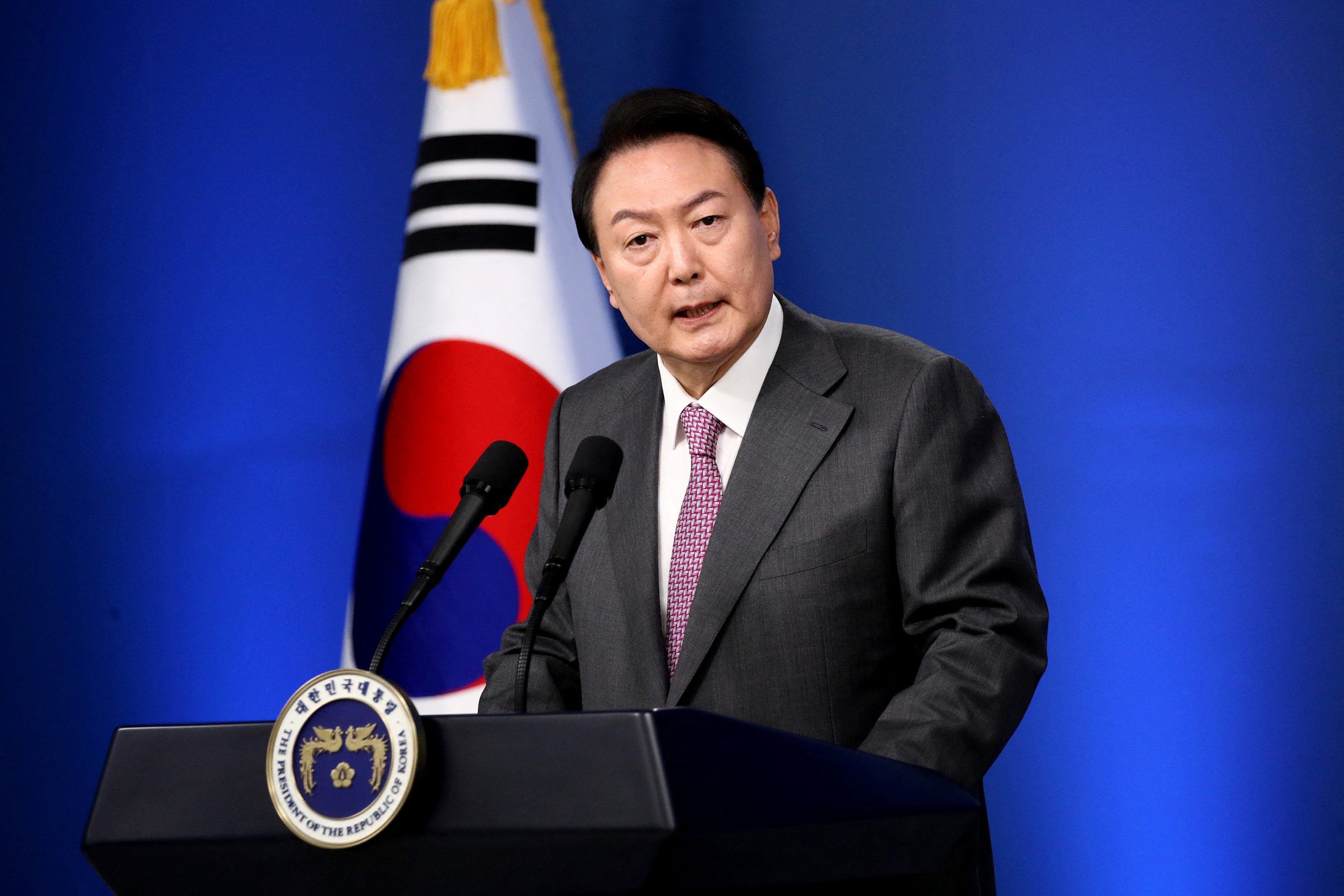Democratic Party Overtakes People Power Party
OpenLife Nigeria has reliably gathered that South Korean President Yoon Suk Yeol’s ruling party suffered a drubbing in legislative elections held on Wednesday, with the main opposition party increasing its majority in the National Assembly and casting a cloud over the remainder of his term in office.
With 100% of votes for directly elected constituencies counted, the Democratic Party was on top in 161 districts, ahead of Yoon’s People Power Party’s 90, according to National Election Commission data compiled by broadcaster JTBC.
The totals do not include proportional representation seats still to be determined.
But South Korean media, including Yonhap News Agency, reported that accounting for the proportional districts, the Democrats would control 175 seats, versus 108 for Yoon’s party.
The Democrats held a total of 154 seats in the 300-seat unicameral legislature before the election, more than the 114 held by the PPP.
Yoon took office nearly two years ago and has been hamstrung by the opposition-controlled legislature.
He is now likely become the first president in South Korea’s democratic history to serve his entire five-year term without ever holding a majority in the body.
He narrowly defeated Lee Jae-myung, who leads the Democratic Party, for the presidency, and the two men have carried on a tense rivalry since then.
South Korean prosecutors indicted Lee in connection with an investigation into a development project that he pursued as mayor of Seongnam, adjacent to Seoul.
Lee has denied wrongdoing and accused the prosecution service of unfairly targeting him.
People Power Party leader, Han Dong-hoon, said after the exit poll results were announced that the party was “disappointed” but would continue watching until official tallies are released.
TV footage showed party members dressed in their signature red jackets sitting glumly and watching results. Han later announced he was stepping down from the post.
Yoon’s party trailed in polls leading up to the elections. Yoon, the country’s former chief prosecutor, has garnered low approval ratings — 37.3% in the first week of April, according to polling firm RealMeter — since taking office in May 2022.
To be able to pass laws throughout the remainder of his time in office, the People Power Party would have to win a majority on Wednesday, an outcome analysts said before the vote was unlikely.
A modest expansion of the Democratic Party’s majority could lead to deadlock in lawmaking, as under South Korea’s political system, the president holds veto power.
Yoon has vetoed nine bills as president, already more than any other leader in the country’s democratic history. However, if the opposition wins more than 200 seats, Yoon would lose his veto power.
The issue of living standards, such as the cost of food and housing, was a major factor in campaigning ahead of the vote, which takes place every four years.
Both major parties have promised to increase state assistance for households. In particular, parties have pledged to allocate funds for hot-button issues such as medical care and the country’s low birthrate.
Both parties campaigned feverishly in the days before the election, making appearances in key districts south of Seoul and in closely contested areas of the capital. Seoul and its environs account for roughly half of the country’s population of 51 million.
Authorities announced that turnout reached 67% — 0.8 percentage point higher than the last such elections in 2020. Election day voting started at 6 a.m. on a national holiday.
Advance voting took place on Friday and Saturday.
At a polling station in eastern Seoul, Lim Hyun-soo said she had just cast her ballot for the People Power Party candidate. “I want to support the president,” she said. “He’s doing well and to do better, he needs more support and cooperation.”
Other voters were less certain. Jung Hye-sook said she had no political ideology, but was compelled to vote by a sense of civic duty. “I’m not progressive or conservative, I just want someone who will work hard and do well for the country,” Jung said, while declining to say who she voted for.
The opposition has campaigned on the South Korean political custom of “judging” the administration, imploring voters to support opposition candidates as a way of communicating disapproval of incumbents.
Kim Da-hye, who works in film, said she dislikes how Yoon is running the country. “Life is really difficult these days in Korea, in every way, and Yoon doesn’t have any vision for how to lead us out of it,” Kim said.
“He just seems to want to hold and exercise as much power as he can,” she added. Critics have accused Yoon of using the prosecution service to silence voices speaking out against him in media and labor unions.
In an indication of high public interest in the election, turnout for early voting hit a record high for a legislative election, with 31.28% of eligible voters having cast their ballots on Friday and Saturday. That figure accounts for 13.8 million out of 44.2 million people of voting age.






